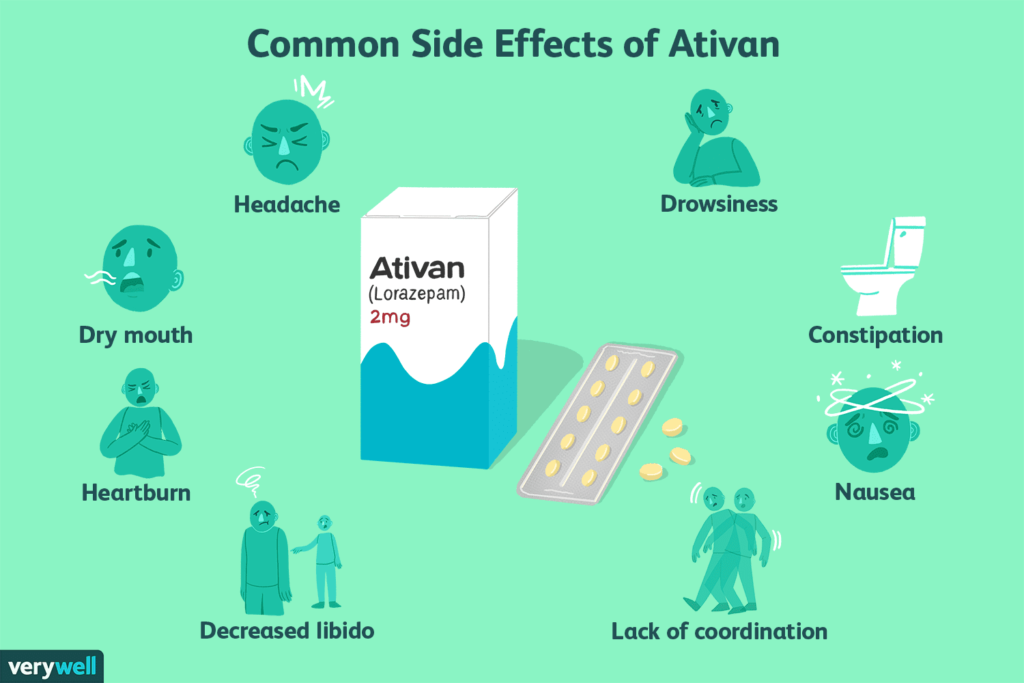Introduction
Sleep disorders are a common and often debilitating issue that can affect your physical and mental health. While there are numerous treatments available, Ativan (lorazepam) is a medication sometimes used to manage sleep disorders. This guide explores Ativan’s role in the long-term treatment of sleep disorders , including its effectiveness, potential risks, and considerations for prolonged use.
Understanding Ativan
Ativan, a benzodiazepine, is primarily prescribed for anxiety but is also used off-label for sleep disorders, especially in cases where insomnia is linked to anxiety. It works by enhancing the effects of gamma-aminobutyric acid (GABA), a neurotransmitter that promotes calmness and sleep. This makes it a powerful option for those struggling with sleep issues.

The Role of Ativan in Long-Term Treatment
1. Efficacy Over Time
- Initial Benefits: Ativan is known for its quick onset, which can be beneficial in managing acute episodes of insomnia. Its ability to reduce anxiety also indirectly aids sleep.
- Tolerance Development: Over time, the body may become accustomed to Ativan, leading to reduced effectiveness. This phenomenon, known as tolerance, can necessitate higher doses to achieve the same effect, which poses significant risks.
2. Risk of Dependence
- Physical Dependence: Long-term use of Ativan can lead to physical dependence, where the body relies on the drug to function normally. Stopping Ativan suddenly after prolonged use can result in withdrawal symptoms, including severe rebound insomnia, anxiety, and agitation.
- Psychological Dependence: Individuals may also develop a psychological reliance on Ativan, believing they cannot sleep without it. This dependency can make it challenging to discontinue use.
3. Cognitive and Physical Side Effects
- Cognitive Impairment: Prolonged use of benzodiazepines like Ativan has been associated with cognitive decline, including memory issues and difficulty concentrating.
- Physical Health Concerns: Long-term use can also contribute to physical side effects such as muscle weakness, balance problems, and an increased risk of falls, especially in older adults.
Considerations for Long-Term Use

1. Monitoring and Management
- Regular Assessment: Ongoing monitoring by a healthcare provider is crucial when using Ativan for an extended period. This includes regular evaluations of the medication’s effectiveness, side effects, and the potential development of tolerance or dependence.
- Gradual Dose Adjustments: If discontinuation of Ativan is necessary, it should be done gradually under medical supervision to minimize withdrawal symptoms.
2. Combining Treatments
- Integrated Approach: Combining Ativan with other treatments, such as Cognitive Behavioral Therapy for Insomnia (CBT-I), can enhance long-term outcomes. CBT-I addresses the root causes of insomnia and can reduce the need for medication over time.
- Lifestyle Modifications: Improving sleep hygiene and incorporating relaxation techniques can also support better sleep and potentially reduce reliance on medication.
3. Alternative Medications
- Non-Benzodiazepine Options: For long-term treatment, non-benzodiazepine sleep aids like zolpidem (Ambien) or eszopiclone (Lunesta) may be considered. These medications tend to have a lower risk of dependence compared to Ativan.
- Antidepressants: In some cases, low-dose antidepressants, such as trazodone, are used for long-term insomnia management. These medications can help with sleep while also addressing underlying mood disorders.
The Bottom Line
While Ativan can be an effective tool for managing sleep disorders, its role in long-term treatment is limited due to the risks of tolerance, dependence, and cognitive impairment. It is generally recommended for short-term use, particularly in acute situations where anxiety is a significant contributing factor to sleep disturbances.
For those requiring long-term treatment, it’s important to explore other options and combine therapies to minimize reliance on Ativan. Always work closely with your healthcare provider to create a treatment plan that balances the benefits and risks, ensuring that your sleep health is managed safely and effectively.
This guide emphasizes the importance of careful consideration and medical supervision when using Ativan’s role in the long-term treatment of sleep disorders. Your healthcare provider can offer the most appropriate advice tailored to your specific needs and circumstances.